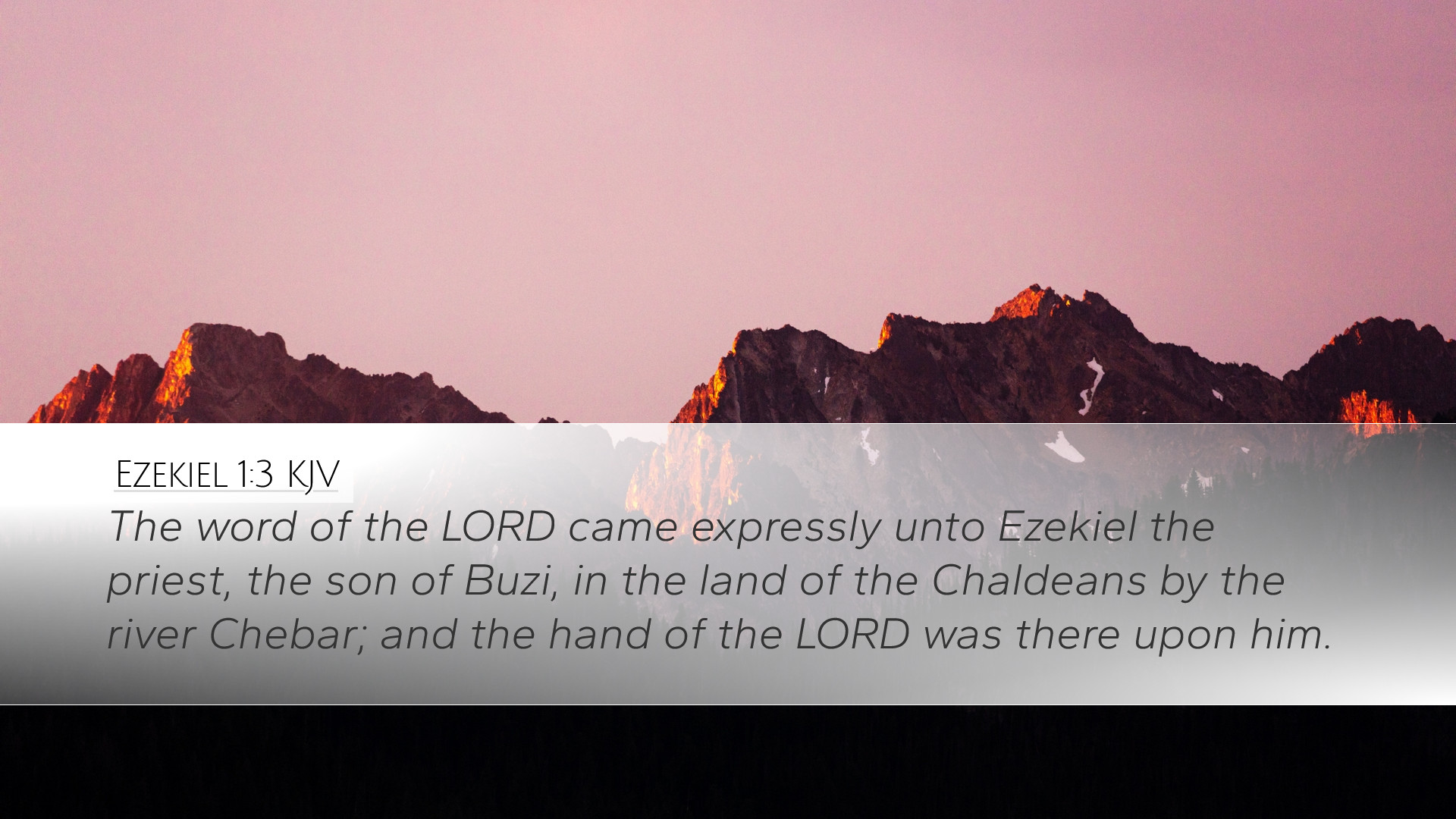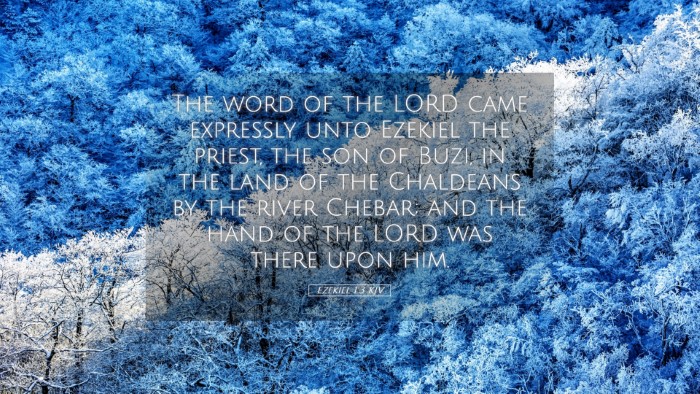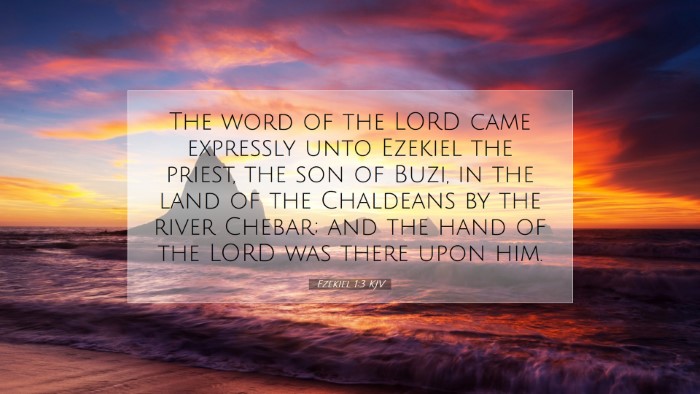Bible Commentary on Ezekiel 1:3
Ezekiel 1:3 (KJV): "The word of the Lord came expressly unto Ezekiel the priest, the son of Buzi, in the land of the Chaldeans by the river Chebar; and the hand of the Lord was there upon him."
Introduction
The passage of Ezekiel 1:3 introduces one of the most significant prophetic books in the Old Testament, highlighting the calling of Ezekiel and setting the context for the unfolding visions of God's glory. This verse encapsulates key themes such as divine revelation, prophetic authority, and the significance of the setting in the life of Ezekiel, both as a priest and a prophet.
Contextual Background
Ezekiel was among the Jewish exiles in Babylon during a critical time in Israel's history, after the fall of Jerusalem. As a priest, his background provided him a unique perspective on both religious observance and the sociopolitical dynamics of his people. The land of the Chaldeans, where Ezekiel received his calling, symbolizes both captivity and the sovereign reach of God's hand. The river Chebar becomes a significant backdrop for divine encounters.
Commentary Insights
Divine Authority and Prophetic Call
Matthew Henry eloquently observes that the phrase “the word of the Lord came expressly” denotes a direct and authoritative communication from God, marking his prophetic anointing. Unlike ordinary messages, this communication was designed to instill a sense of urgency and importance for the prophetic task ahead.
Adam Clarke notes the significance of Ezekiel's title - "the priest." This enhances the understanding that Ezekiel's ministry was rooted in the priestly tradition, whereby he served not only as a prophet but also as a mediator between God and His people. His priestly role emphasizes his call to bring God's revelation to a disobedient nation.
Significance of Location
The setting by the river Chebar carries profound theological implications. Albert Barnes considers the river a place of separation from the promised land, emphasizing the sense of loss and exile experienced by the Jewish people. Nevertheless, it becomes a place where God meets His people, illustrating how divine intervention transcends geographical and spiritual barriers.
The mention of being in the land of the Chaldeans indicates the reality of nationhood in decline. As Henry points out, this context serves to heighten the contrast between Israel's current state of shame and the majesty of the vision Ezekiel is about to receive. It serves as a backdrop for understanding the greater revelation of God's glory and the hope of restoration.
The Hand of the Lord
The phrase “the hand of the Lord was there upon him” is rich in meaning as highlighted by Matthew Henry. This signifies divine empowerment and the active presence of God in Ezekiel's life. The "hand of the Lord" symbolizes not only strength and protection but also the authority to perform the prophetic ministry with zeal and urgency.
Adam Clarke elaborates on the meaning of God’s hand signifying His influence over the circumstances where Ezekiel found himself. The narrative implies that even amid captivity, God remains sovereign and His purposes continue to emerge through His chosen instruments.
Theological Implications
The Nature of Prophetic Ministry
The beginning of Ezekiel’s ministry serves as a reminder of the seriousness embodied in prophetic vocations. The clarity and directness with which God speaks to Ezekiel underscores a profound truth: God's word is infused with authority, mandates obedience, and provokes a response from His people. As indicated by Barnes, the weight of such a calling often comes with the reality of confronting a resistant audience.
God's Sovereignty in Exile
One of the clearest revelations from this verse is the affirmation of God's sovereignty, even in the depths of exile. Matthew Henry highlights that God's ability to speak and operate among a dispersed people is a testament to His unwavering commitment to His covenant. The exile does not mean God has abandoned His people; rather, it is an avenue through which He continues to communicate His plans and purposes.
Hope for Restoration
The very act of calling Ezekiel in such adverse conditions hints at the hope that should characterize the prophetic message. Barnes notes that the subsequent messages in Ezekiel will convey themes of judgment but also promise restoration. This balance of judgment and hope is critical for understanding the trajectory of prophetic literature and its relevance for both the original audience and future generations.
Conclusion
The verse Ezekiel 1:3 encapsulates a pivotal moment in the Scriptures, where divine revelation intersects with human reality. By studying this passage through the insights provided by public domain scholars like Matthew Henry, Albert Barnes, and Adam Clarke, readers gain a deeper understanding of the weight of prophetic call, the significance of one's context, and the ever-present sovereignty of God in the lives of His people. As pastors, students, and theologians reflect on this verse, they are encouraged to consider how God's hand continues to operate in their lives, even amidst challenging circumstances.


